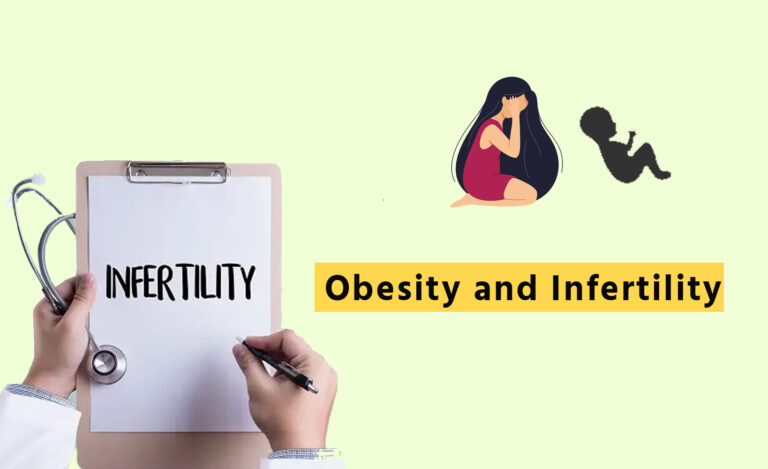Obesity and Infertility - Aastha Bariatrics

Obesity is a major health concern that affects millions of people worldwide. It is a condition that is characterized by excessive accumulation of body fat, which can have significant health consequences.
One of the consequences of obesity is infertility. Obesity has been linked to several reproductive health problems, including irregular menstrual cycles, hormonal imbalances and infertility.
The link between Obesity and Infertility
Obesity has a direct impact on the reproductive system of both men and women.
In women, obesity can lead to menstrual irregularities, hormonal imbalances, and anovulation, which is the inability to ovulate. Ovulation is essential for conception to occur. When a woman does not ovulate, it becomes difficult for her to get pregnant.
In addition, obesity also increases the risk of polycystic ovary syndrome (PCOS), a condition that can further interfere with fertility. Obesity can also increase the risk of pregnancy complications such as miscarriage and preterm delivery.
In men, obesity can lead to a reduction in testosterone levels, which can decrease sperm quality and quantity. This makes it more difficult for women to conceive. Studies have shown that obese men have a lower sperm count and motility as compared to those who are non-obese.
Obesity can also lead to erectile dysfunction, which makes it more difficult for men to achieve and maintain an erection during sexual intercourse.
Impact of Obesity on Fertility treatments
Obesity can have a negative impact on fertility treatments. Women who are obese may require higher doses of fertility medications to stimulate ovulation, which can increase the risk of multiple pregnancies or may lead to reduced response to fertility treatments, which can lead to a lower success rate.
Lifestyle changes
As obesity is a major risk factor for fertility. Making lifestyle changes such as losing weight, eating a healthy diet, and exercising regularly can improve fertility in men and women.
In women, weight loss can help regulate menstrual cycles and improve ovulation, making it easier to conceive. Hence, lifestyle modifications help to improve fertility outcomes.
How Bariatric surgery helps with infertility?
Bariatric surgery is a type of weight loss surgery that can help individuals who are obese lose weight and improve their health.
Obesity is a known risk factor for infertility and bariatric surgery can improve fertility in both men and women who are obese. Bariatric surgery helps improves menstrual regularity and ovulation in anovulatory obese women, thus restoring fertility. Bariatric surgery can also help men with obesity-related infertility issues, such as low sperm count and poor sperm quality.
Bariatric surgery can lead to significant weight loss, which can reduce insulin resistance, inflammation and hormonal imbalances that contribute to infertility.
In addition to improving fertility, bariatric surgery can also help with other obesity-related health problems, such as type 2 diabetes, high blood pressure, sleep apnea and joint pain. Bariatric surgery can also improve mental health, self-esteem and overall quality of life.
Aastha Bariatrics is dedicated to providing comprehensive support to patients during and after their weight loss journey. Led by renowned bariatric surgeon Dr Manish Motwani. Our team of specialists will assist you in every possible way to minimize the chances of loose skin and take prevention before and after the surgery. We understand the concerns of our patients and strive to make the process as seamless as possible.
Read also; The Cost of Bariatric Surgery in India
Why We Are?
- Asia's Trusted Bariatric Center
- Centre of Excellence
- Patient Trusted Highly Volume Bariatric Center in Mumbai
- EMI, Cashless & Mediclaim Facilities are Available
- Daily Patients Follow-up after Bariatric Surgery
- Patient Support Group Every Month
- Obesity Awareness Program
- Available with Latest Technologies
- 18+ Experience in Weight Loss Bariatric Surgery
- 300+ Weight Loss Diet Plan & Recipes
- Highly Trained & Experienced Bariatric Nutritionist
- Patient WhatsApp Chat Group
- & Many More
Medically reviewed by Dr. Manish Motwani, Bariatric & Metabolic Laparoscopic Bariatric Surgeon — Curated by Vidhi Jain






